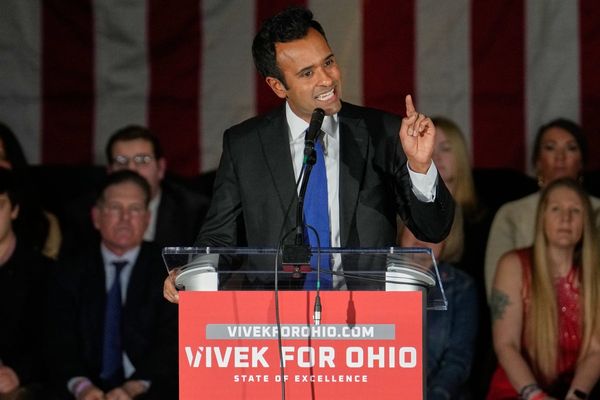
While we’re waiting to find out what’s going to happen in Brazil, the world’s media is still struggling to explain what just happened in Italy.
Here’s Australia’s establishment voice, The Sydney Morning Herald, giving us some certainty: “The Fascisti represent the best elements in Italy.” There’s nothing to worry about as “not a single organic institution will be challenged or a single function of the state abrogated”.
At least, that was the Herald on November 1 1922, (courtesy of Trove), reporting last century’s first coming of fascism. But it could just as well be today’s complacently conservative media reporting Italy’s latest election.
Here’s Greg Sheridan in The Australian: “Meloni’s program is a perfectly legitimate centre-right amalgam.” In British broadsheet The Telegraph, Allison Pearson wrote: “When I listen to the new Italian prime minister speak, I hear mainstream conservative values that millions of people share.”
Meanwhile, in Sydney’s Daily Telegraph, James Morrow explained those values: “Her politics is … a rebuke to an establishment liberalism that has lost its way since the end of the Cold War and now demands high migration, low emissions, and fealty to woke ‘men can have babies’ gender ideology.”
It’s a step back in time: the SMH’s 1922 “special correspondent” similarly situated the politics of the incoming Mussolini in the conservative mainstream: “Government must be decentralised, finance reformed, education extended, Italy’s foreign influence more decisively felt, and mealy-mouthed internationalism and class war purged forever.”
Ah, “mealy-mouthed internationalism and class war” — the “woke” of a century ago.
For news consumers, it’s disconcerting: a global media with a business model dependent on catastrophising events into “NEWS!” is now “nothing to see here” over the political re-emergence of a defining event of the 20th century.
Here’s the sensible centre, eager to stress the (very real) constraints on Italy’s freedom of movement means the European institutions have it under control. And here’s the conservative opinionistas savouring Meloni’s victory as a win for what they understand as “mainstream conservatism”. Meanwhile, on the left, there’s an it’s-doomed-to-fail smugness with a it’s-not-blackshirt-enough-to-be-fascism nit-picking.
There’s a wilful media blindness that refuses to link the rise of fascism in politics with widespread abuse and violence in society at large and an ahistorical reluctance to grasp that, like all movements, fascism evolved — in its semiotics at least — from that militaristic moment of post-war 1922. It’s been reshaped by the big movements it professes to despise: modernism, post-modernism and even a certain type of feminism.
Meloni is a very modern ethno-nationalist of a particularly nasty stripe, a supporter of the Great Replacement conspiracy theory. Her rhetorical identifiers — woman, family, Christian, Italian — celebrated at face value by conservative writers are a winking symbolism, empowering abuse and violence.
Amid growing diversity, “Italian” is a contested space. As we know in Australia, sport clarifies racism: one of the best footballers of the past decade, Mario Balotelli — born in Italy to Ghanaian parents — has became a particular target for abuse by racist “ultra” fans. He might have played for his country 34 times, but, for them, “he’ll never be fully Italian”. Balotelli now plays in Switzerland.
The 1922 Herald did it better, recognising (even applauding) the violence against the “other” powering the first rise: “The Fascisti cleared the Communists out of the factories, harried them onto the streets, repaid murder by murder and smashed and burned their clubs and newspapers.”
Now, as UN High Commissioner for Human Rights Michelle Bachelet told the Italian Senate earlier this year, the targets for hate are “Italians and non-nationals of many origins” including “women, Muslims, people with disabilities, Jews, LGBTI people and migrants”.
We saw under Trump (and expect to see this week in Brazil) how violence against the “other” increases when the far-right takes office and empowers its supporters. We see too that it’s most dangerous not on the way in, but when it risks going out of office.
To be fair to the 1922 Herald, they were relying — as all Australian papers then did — on a feed out of Fleet Street, in this case the Daily Chronicle. And to be fair to the Chronicle, it had a later life, beginning in the 1930s, as the staunchly anti-fascist News Chronicle (with its correspondent Arthur Koestler captured and jailed by Francoist forces in the Spanish Civil War). It was a 1950s opponent of Britain’s Suez occupation before it sadly ended up absorbed into that most Tory of tabloids, the Daily Mail, in 1960.
A hundred years ago, fascism was just another movement in a far-off country of which even the educated backbench of the Herald would have understood little.
What’s the excuse now?







